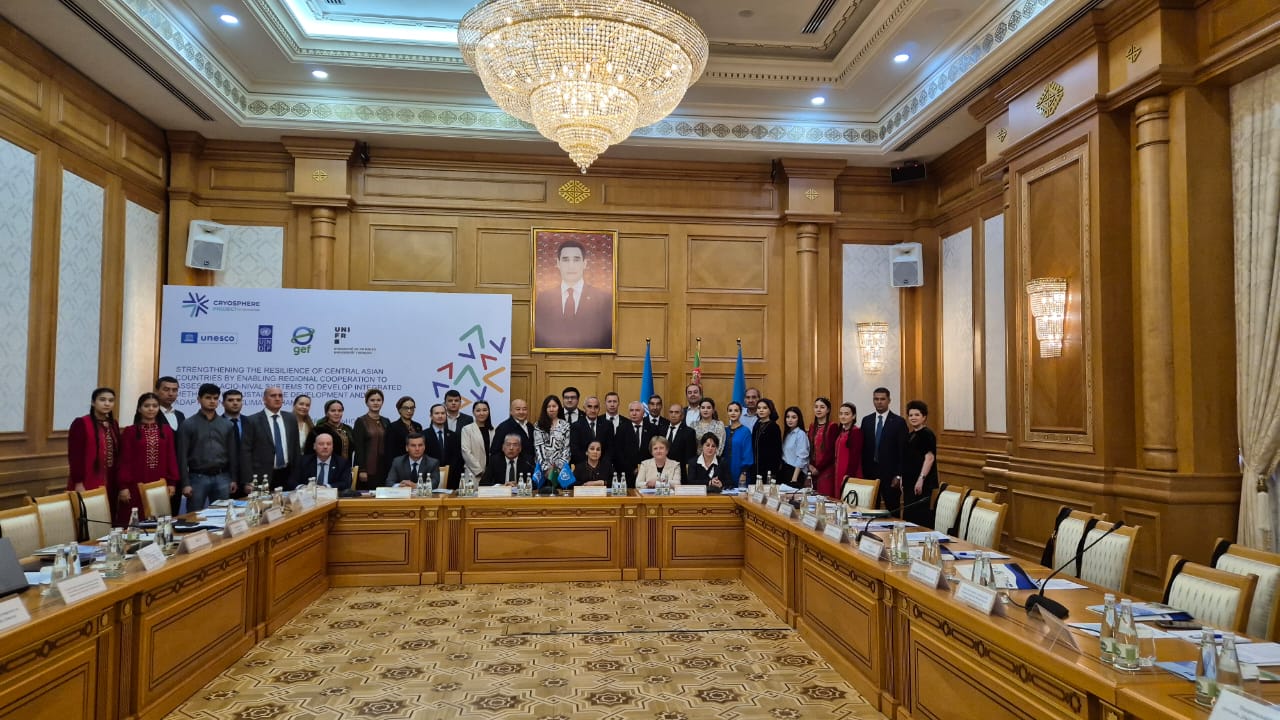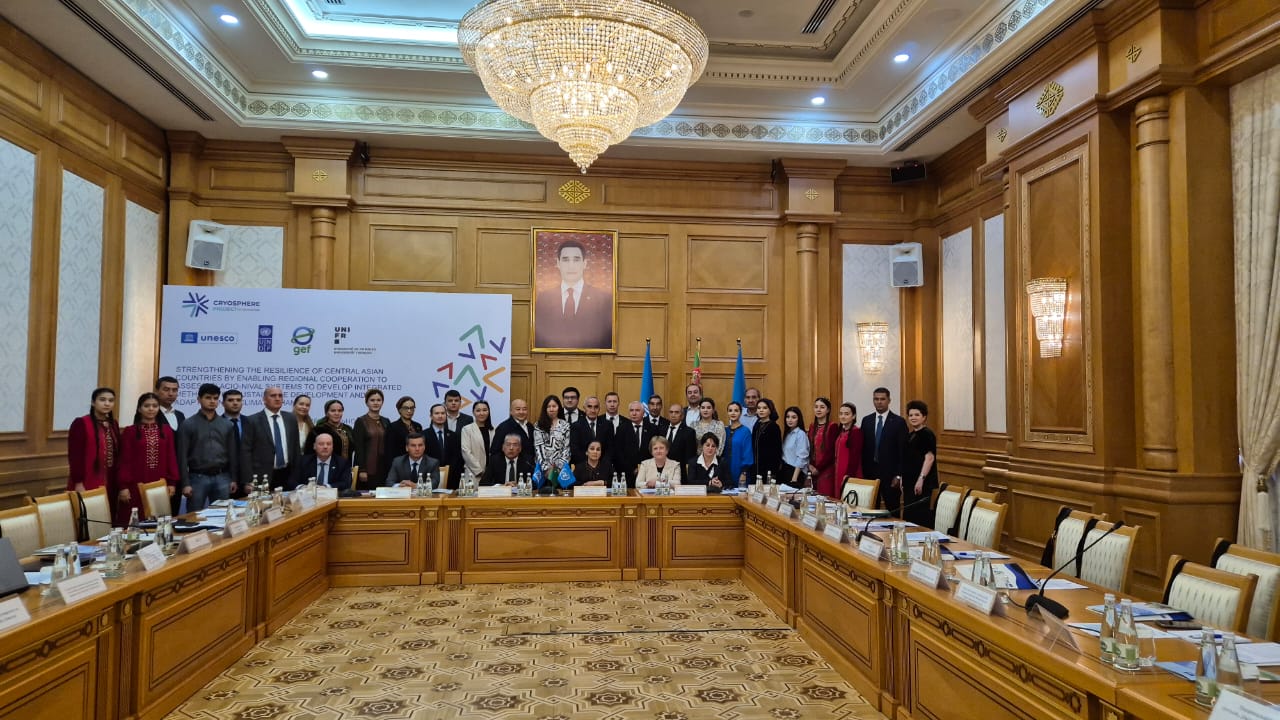
On October 8-9, a national seminar was held in Ashgabat, Turkmenistan, dedicated to strengthening the resilience of Central Asian countries. The event aimed to promote regional cooperation in assessing nival-glacial systems and developing integrated methods for sustainable development and adapting to climate change.
The goal of the Global Environment Facility (GEF) project, implemented by the United Nations Development Programme (UNDP) and realized by UNESCO, is to strengthen the adaptive capacity of Central Asian States to the effects of climate change on the cryosphere. This is achieved through scientific assessment, regional cooperation and stakeholder engagement. The project is aimed at strengthening cooperation between countries, scientists and institutions, as well as improving the exchange of information and knowledge, and developing dialogue.
The seminar brought together key stakeholders, including cryosphere experts from the Republics of Kazakhstan, Uzbekistan, Kyrgyzstan and Tajikistan, data management specialists and representatives of ministries and departments, as well as research institutes and youth of Turkmenistan. Director Mergen Kepbanov was present from the project office of the Regional Environmental Center for Central Asia (CAREC).
The main objectives of the seminar are:
1. Discussion of the identified problems within the framework of Diagnostic Analysis, their evidence base, impact and cause-effect relationships, taking into account the prospects of each country.
2. Identification of leverage and priorities for solving the identified problems.
3. Setting national priorities for awareness-raising, capacity-building and adaptation measures.
The seminar has become an important platform for the exchange of knowledge and experience, contributing to the creation of a solid foundation for cryosphere monitoring and data management at the national level. The participants discussed scenario strategies to address future changes in the cryosphere in Central Asia, which will allow the regions to better prepare for climate challenges.
Mergen Kepbanov, Director of CAREC project office in Turkmenistan, noted: “Such seminars play a key role in strengthening cooperation between the countries of the region and developing effective strategies for adaptation to climate change. We are confident that joint efforts will lead to significant results in the field of sustainable development. And also the condition of glaciers plays an important role for Turkmenistan, since they form an inflow of fresh water from the Amu Darya, which originates in the Pamir and Hindu Kush mountains.”
The seminar ended on a positive note, with participants full of enthusiasm and ready for further cooperation to achieve the common goals of sustainable development and adaptation to climate change in Central Asia.
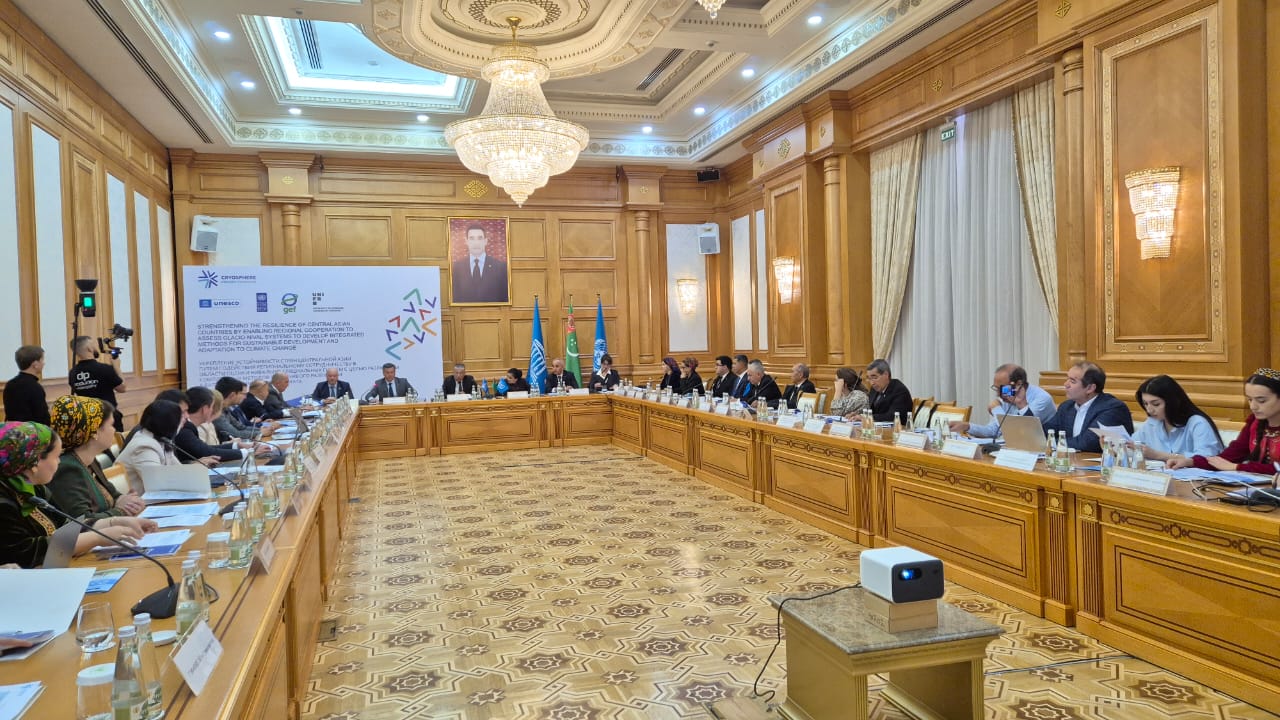
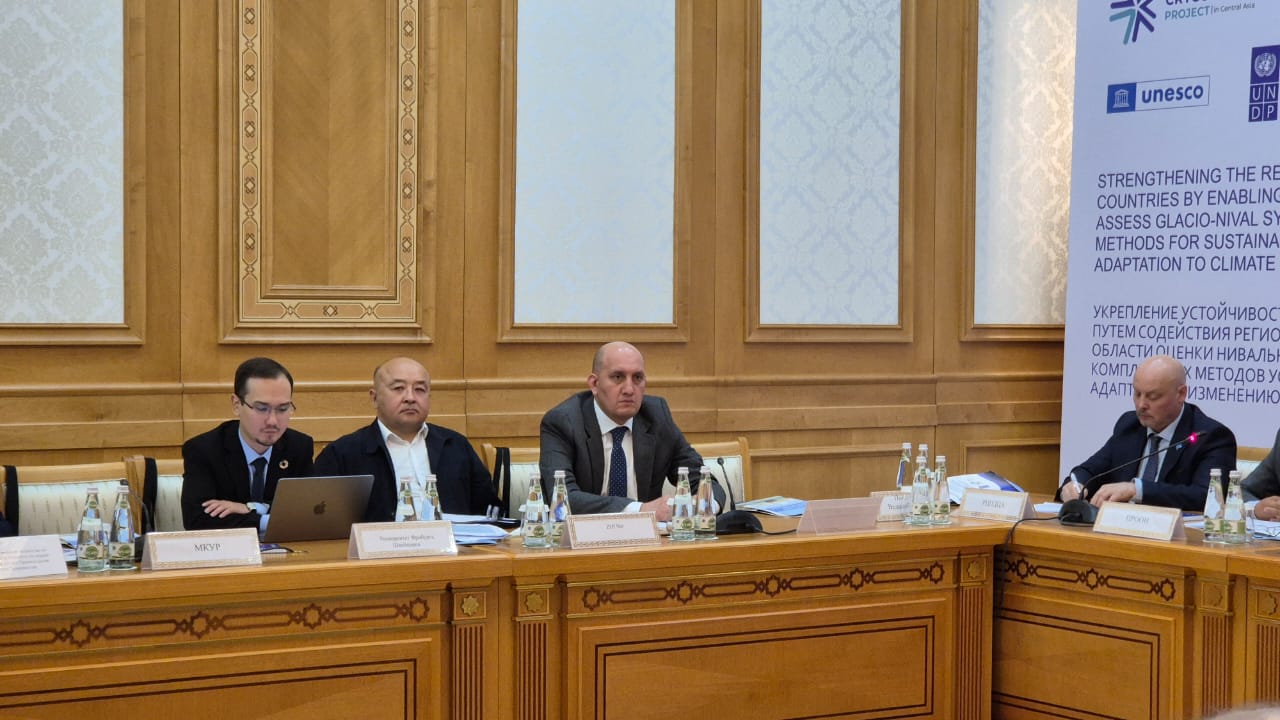
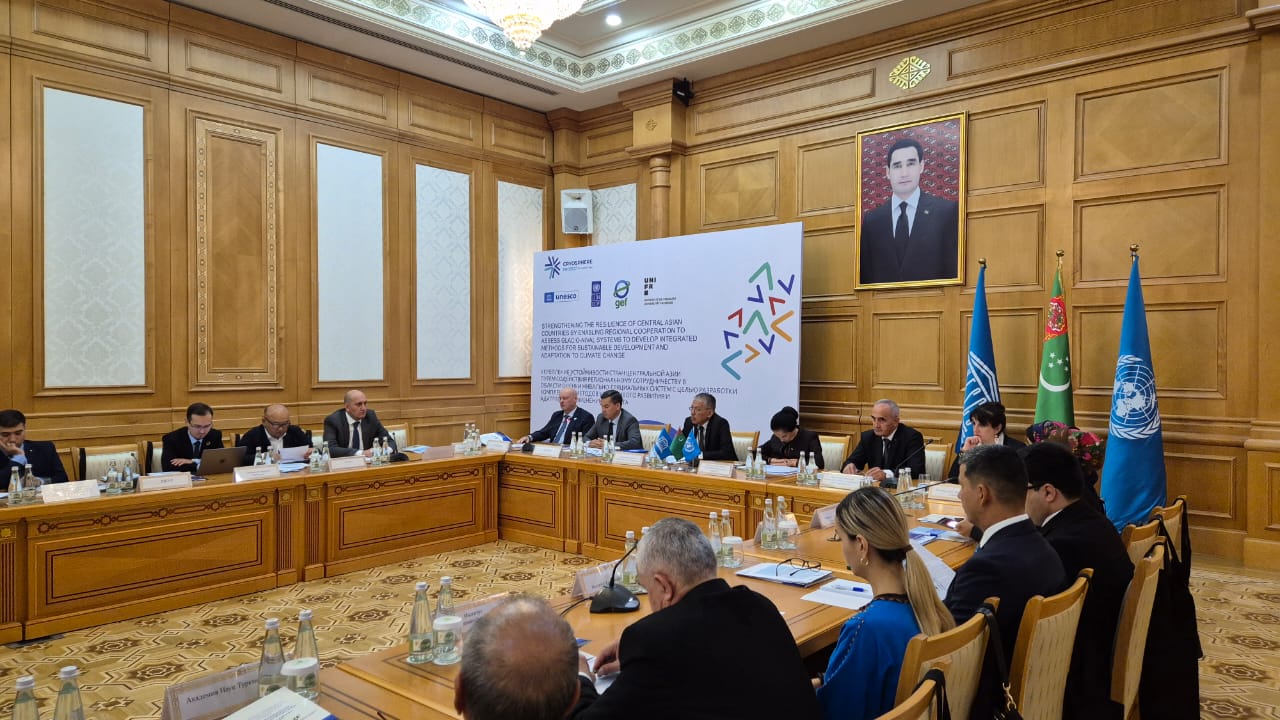
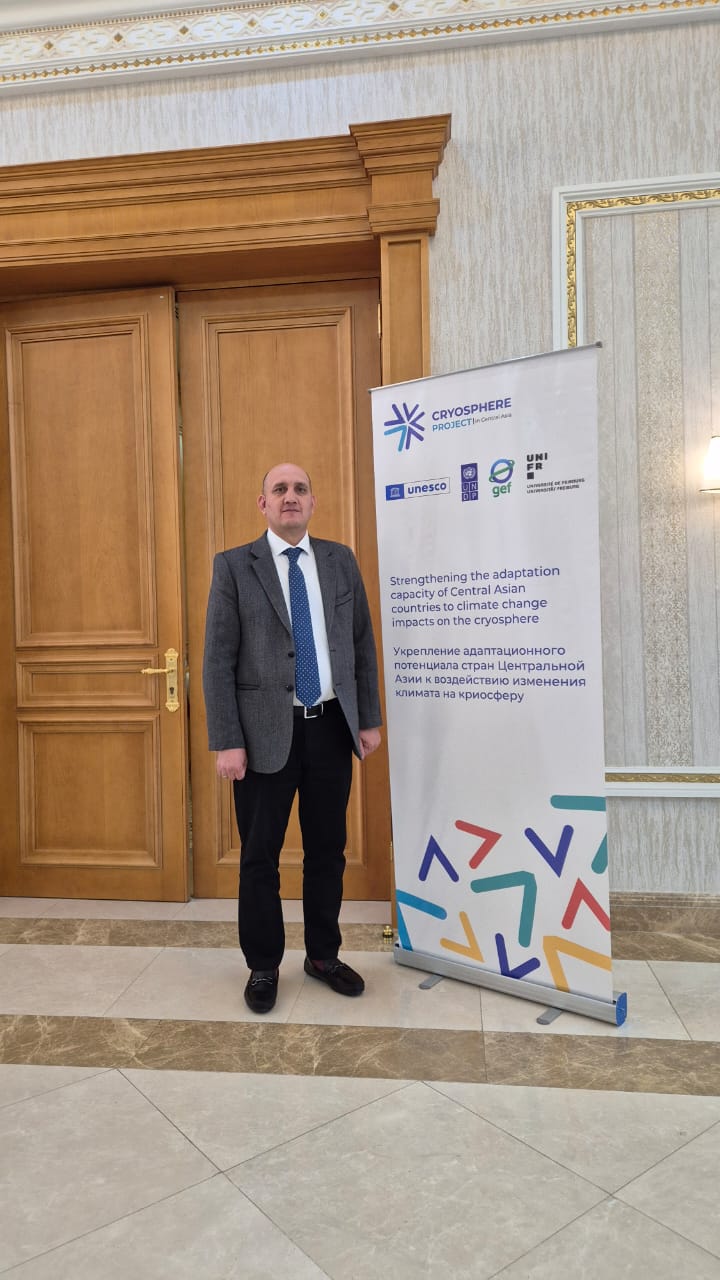
Additional information:
Mergen Kepbanov, Director of the CAREC Project Office in Turkmenistan, turkmenistan@carececo.org

